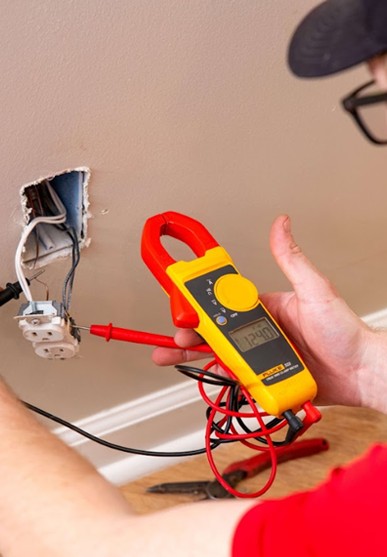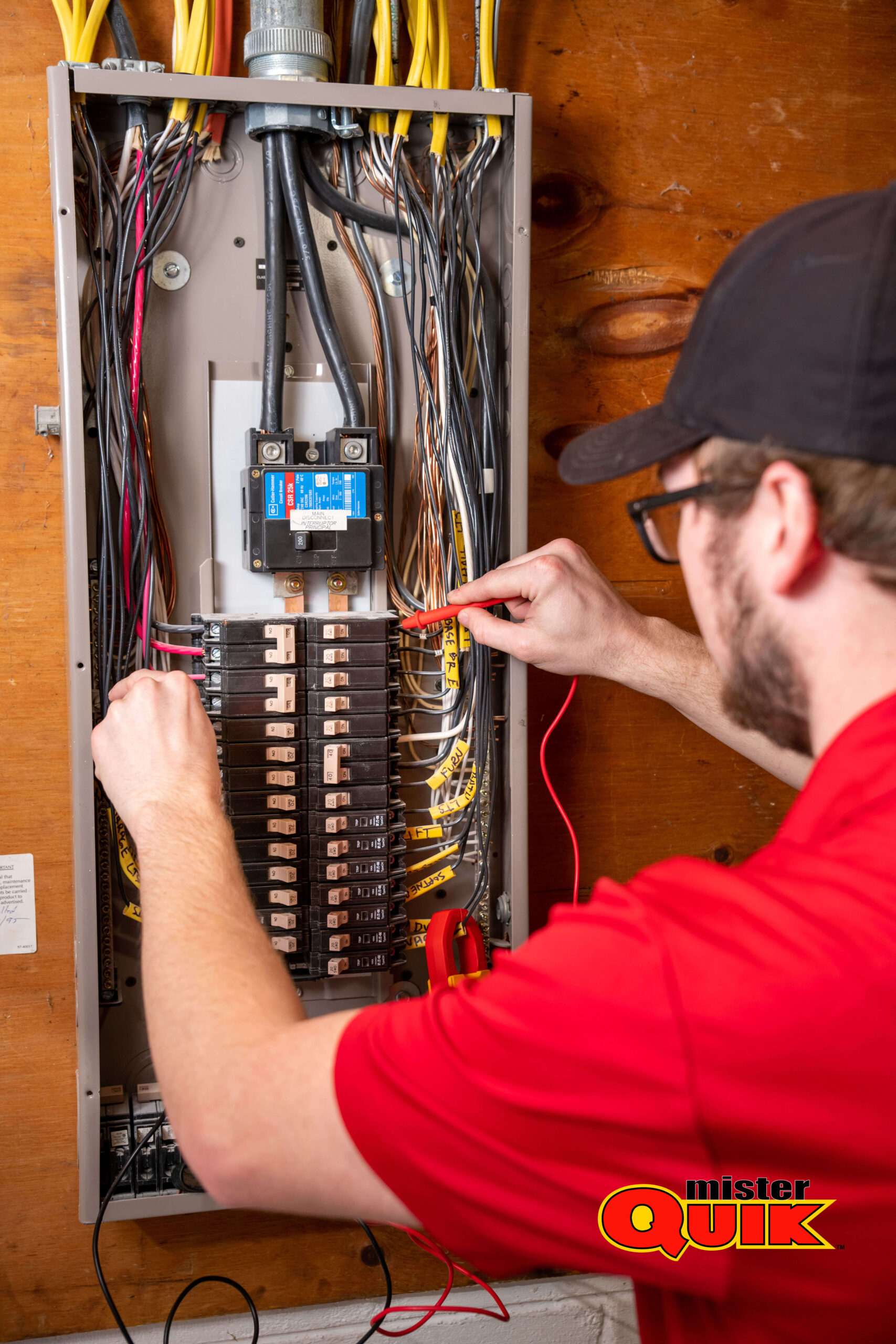Best meter bases in Indianapolis
Schedule on your own without making a call. Click the button below to get started!

Meter bases near me
Are you searching for information about meter bases near you in Indianapolis? Understanding meter bases is crucial as they play a vital role in your home’s electrical system. Here’s everything you need to know about meter bases and their importance:
- Meter Base Function: Meter bases are the point where your home’s electrical service connects to the utility company’s power lines, measuring the amount of electricity consumed.
- Types of Meter Bases: There are various types of meter bases, including overhead and underground installations, each serving specific purposes depending on the home’s construction and utility setup.
- Meter Base Components: Meter bases consist of a meter socket, which houses the electric meter, and a service entrance conductor, which connects the meter to the main electrical panel.
- Location and Accessibility: Meter bases are typically located on the exterior of the home near the main electrical panel for easy access by utility personnel and service technicians.
- Maintenance and Upgrades: Regular maintenance of meter bases is essential to ensure proper functionality and safety. Upgrading to newer meter bases may be necessary to accommodate increased electrical loads or meet updated building codes.
In conclusion, understanding meter bases and their role in your home’s electrical system is crucial for ensuring safety, reliability, and compliance with regulations. For expert assistance with meter base maintenance or upgrades in Indianapolis, trust Mister Quik Home Services.
Meter base price in my area
Understanding the cost of a meter base in your area is crucial for budgeting electrical projects. Prices can vary based on factors like location, materials, and labor. Here’s a detailed overview to help you understand meter base prices:
Meter base prices may differ depending on your specific location within Indianapolis due to varying market conditions and supplier rates.
The type and quality of materials used for the meter base can impact its price. Higher-quality materials may cost more upfront but offer better durability and longevity.
The complexity of the installation process, such as accessibility and existing infrastructure, can affect the overall cost of the meter base.
Obtaining necessary permits for installing or replacing a meter base may involve additional fees, which should be factored into the total cost.
The cost of labor for installing the meter base varies based on the contractor's rates, experience level, and the time required to complete the installation.
In conclusion, understanding the factors influencing meter base prices in your area is essential for planning electrical projects effectively. For reliable guidance and assistance with meter base installation or replacement, trust Mister Quik Home Services in Indianapolis to deliver quality service at competitive prices.
The capacity of a residential meter to handle amps varies based on the electrical service provided to the property and the specific configuration of the meter. Typically, residential meters are rated to handle 100 to 200 amps of electrical service.
Whether 200 amps is enough for a house depends on the electrical demands of the property and the appliances and systems it needs to power. For many residential properties, a 200-amp electrical service is sufficient to meet typical household needs, including lighting, heating and cooling, appliances, and electronics.
The height at which a meter base needs to be installed off the ground depends on local building codes and regulations. In most jurisdictions, meter bases are typically installed at a height of around 5 to 6 feet above the ground to ensure they are easily accessible for utility workers and maintenance personnel.
Yes, a meter base can go bad over time due to various factors such as corrosion, deterioration, damage from weather or pests, and wear and tear. A faulty or deteriorating meter base can lead to electrical problems, including poor connections, power interruptions, and safety hazards. Signs of a bad meter base may include visible damage, corrosion, overheating, or irregular electrical readings.
The lifespan of a meter base can vary depending on factors such as the quality of materials, environmental conditions, and maintenance practices. In general, meter bases are designed to last for 20 to 25 years under normal operating conditions. However, factors such as corrosion, physical damage, and electrical issues can shorten the lifespan of a meter base.
What is a meter base
If you’re wondering about meter bases, you’re in the right place. A meter base is a crucial component of your electrical system that connects your home to the utility’s power supply. Here’s everything you need to know about what a meter base is and its significance:


The meter base serves as the connection point between your home’s electrical wiring and the utility company’s power lines.
It houses the electric meter, which measures the amount of electricity consumed by your household.
Meter bases are typically located on the exterior of the home, near the main electrical panel.
They are equipped with safety features such as grounding wires and surge protection to protect against electrical hazards.
Meter bases need to be easily accessible for utility workers to read the meter and perform maintenance or repairs.
In conclusion, understanding the role of a meter base is essential for homeowners to ensure the safe and efficient delivery of electricity to their homes. Trust Mister Quik Home Services in Indianapolis to provide expert assistance with meter base installation, maintenance, and repairs to keep your electrical system running smoothly.
200 AMP meter base
A 200 AMP meter base is a crucial component of your electrical system, responsible for measuring and regulating the flow of electricity into your home. Understanding its function and features is essential for ensuring the safety and efficiency of your electrical setup. Here’s what you need to know about a 200 AMP meter base:



A 200 AMP meter base is designed to handle electrical loads of up to 200 amps, providing sufficient power for most residential properties.




Proper installation of the meter base is vital to ensure safe and reliable electricity supply to your home. It should be installed by a licensed electrician in compliance with local building codes and regulations.




Before installing a 200 AMP meter base, it's essential to ensure compatibility with your existing electrical panel and wiring system.



The meter base houses the electric meter, which measures the amount of electricity consumed by your household and determines your utility bill.




Modern 200 AMP meter bases come equipped with safety features such as surge protection and ground fault circuit interrupters (GFCIs) to protect against electrical hazards.
Understanding the role and characteristics of a 200 AMP meter base is crucial for maintaining a safe and efficient electrical system in your home. Trust Mister Quik Home Services in Indianapolis to provide expert guidance and installation services for your electrical needs, ensuring the reliability and safety of your electrical setup.
Meter base with disconnect
Are you curious about meter bases with disconnects and their role in your home’s electrical system? Understanding this essential component can help you ensure safety and efficiency. Here’s an in-depth guide to meter bases with disconnects:
1.Definition:
A meter base with disconnect serves as the point where your home’s electrical service connects to the utility’s power grid, allowing electricity to enter your home.
2. Purpose:
The disconnect switch in the meter base provides a way to manually disconnect your home from the power supply, crucial for maintenance, repairs, or emergencies.
3.Components:
It consists of a meter socket where the electric meter is installed and a disconnect switch, typically a lever or breaker, that allows for easy isolation of your home’s electrical system.
4.Safety:
The disconnect switch enhances safety by enabling homeowners or utility workers to cut off power to the home without accessing the main circuit breaker panel.
5.Regulations:
Meter bases with disconnects must comply with local electrical codes and regulations to ensure proper installation, operation, and safety.
In conclusion, understanding meter bases with disconnects empowers homeowners to make informed decisions about their electrical systems. For professional installation, maintenance, or repairs, trust Mister Quik Home Services in Indianapolis to keep your home safe and powered reliably.
Meter base replacement
If you’re considering a meter base replacement, it’s essential to understand the process and its implications. A meter base is crucial for your electrical system, and replacing it requires careful consideration. Here’s what you need to know about meter base replacement:
An initial assessment is conducted to determine if a replacement is necessary, considering factors like age, damage, and code compliance.
Obtain any necessary permits for the replacement project, ensuring compliance with local building codes and regulations.
The power supply to your home must be safely disconnected before removing the old meter base to avoid electrical hazards.
Skilled electricians install the new meter base according to manufacturer specifications and local codes, ensuring proper alignment and functionality.
After installation, a thorough inspection is conducted to verify that the new meter base meets safety standards and regulatory requirements.
In conclusion, meter base replacement is a critical aspect of maintaining a safe and efficient electrical system in your home. Trust Mister Quik Home Services in Indianapolis to handle your meter base replacement professionally, ensuring the safety and reliability of your electrical infrastructure.
Troubleshoot Checklist:
- Check for visible signs of damage or corrosion on the meter base.
- Evaluate the age and condition of the meter base to determine if replacement is necessary.
- Safely disconnect the power supply to the home before inspecting or replacing the meter base.
- Ensure all safety precautions are taken to avoid electrical hazards during the disconnection process.
- Obtain any required permits for the meter base replacement project.
- Ensure compliance with local building codes and regulations regarding meter base installation and replacement.
- Hire skilled electricians to perform the meter base replacement according to manufacturer specifications and local codes.
- Verify proper alignment and functionality of the new meter base after installation.
- Conduct a thorough inspection of the new meter base to ensure it meets safety standards and regulatory requirements.
- Test the functionality of the meter base to verify accurate meter readings and proper electrical connections.









